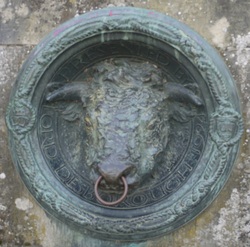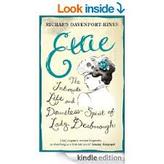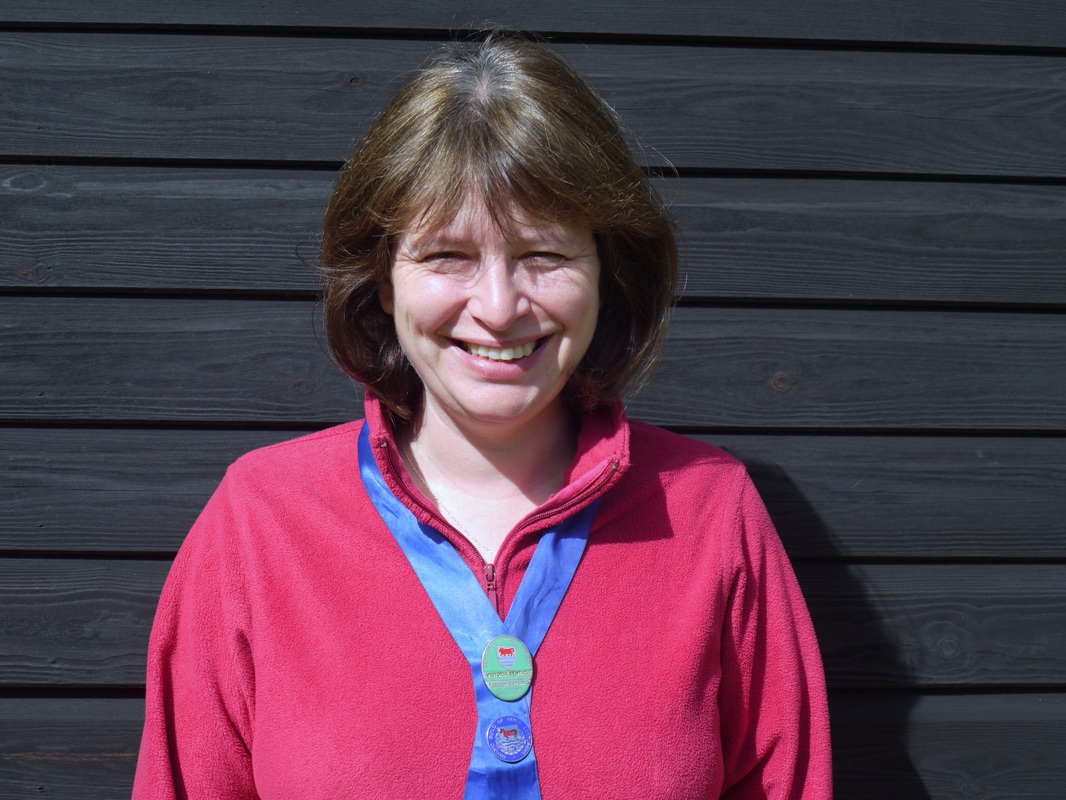 Anyone who has rowed in the University bumps races on the Isis will know that each race starts at Iffley Lock, beside a bronze cast of a Bull’s head with a ring in its nose. This ‘Starting Ring’ was presented by Lord Desborough in 1924. William Henry Grenfell, the first and last Lord Desborough, was one of the University of Oxford’s finest sportsmen. Six feet five inches tall, he was a man of extraordinary, restless energy who relished a challenge. In fact everything about the man and his life seems to have been on a grand scale and the sheer number and variety of his physical achievements is quite amazing: a Balliol man who captained the Oxford University Boat Club and rowed twice in the Boat Race, he apparently stroked an eight across the English Channel in 4 hours 22 minutes, twice swam across the rapids at the base of the Niagara Falls and climbed four Swiss mountains including the Matterhorn in eight days. He was also a wrestler, tennis player, three-time Amateur Punting Champion of the Upper Thames and in 1906, at the age of 50, won an Athens Olympics silver medal for fencing. His working life in politics as a Liberal MP was similarly varied and at one point he was rumoured to be serving on 115 committees simultaneously! However, his crowning achievement was surely to bring the Olympic Games to London. For Lord Desborough was a visionary and when he became the first President of the British Olympic Association at its creation in 1905, he worked tirelessly to promote and encourage excellence in sport. Never one to miss an opportunity, and noting the likely effect of the recent eruption of Vesuvius on the ability of the Italians to host the 1908 Olympics, he came to the rescue and persuaded his friend Baron de Coubertin, the founder of the modern Olympic movement, that England was ready and willing. The 1908 Games were thus organised in a mere eighteen months and Lord Desborough apparently gave a superlative total of 139 speeches at luncheons and functions to promote them. In fact he raised so much money that the public had to be asked not to send any more! Fittingly, he had the honour of firing the starting gun for the first ever marathon over 26 miles, with the finishing line at the feet of King Edward VII. Following the success of the London Olympics, Lord Desborough wrote in 1910, 'In the Games in London were assembled some two thousand young men…representative of the generation into whose hands the destinies of most of the nations of the world are passing at this moment…and we hope that their meeting…may have a beneficial effect hereafter on the cause of international peace.' Tragically for the nation and for Baron Desborough of Taplow himself, international peace was not to be, at least in the short term, and he lost two of his three sons to the First World War with his third and youngest son dying in a car accident in 1926. Despite the Times mistakenly publishing his obituary in 1920, occasioning a memorable Pathé newsreel title "Lord Desborough - erroneously reported dead a few days ago - unveils War Memorial", Lord Desborough lived until 1945 and died at the age of 90. His dedication to sport and to Oxford never waned and despite the desperate sadness of his family story, he continued to be active in sport, becoming president of the Amateur Athletic Association (also, incidentally, founded in Oxford - in the bar of the Randolph Hotel) from 1930 to 1936. His 1913 book Fifty Years of Sport at Oxford, Cambridge and the Great Public Schools is now a collector’s item, but his vision for the future of sport in this country is alive and well and the inspiration for the most recent London Olympic Games. Having discovered Lord Desborough, purely by reading the inscription on the starting ring at Iffley Lock and investigating further, I recently discovered his wife, who seems to have been entirely as extraordinary, gifted, energetic and life-enhancing as her husband. Richard Davenport-Hines has written a lovely biography of this great lady, 'whose whole existence seemed a cry for life but was dogged by death' and which also stands as a memorial to her sons, of which The Balliol War Memorial Book apparently says ‘Both were intensely alive: both were the joy of their friends’. The book is called Ettie: The Intimate Life and Dauntless Spirit of Lady Desborough.
1 Comment
Peter Williams
9/9/2021 02:08:36 pm
Lord Desborough's crucial work on the 1908 Olympic Games is covered in a sequence of three pieces for a rowing website called Hear The Boat Sing, which has an audience of those keen on all things rowing and river related. The three pieces were published as follows:
Reply
Leave a Reply. |
AuthorI am fascinated by the history of Oxford and am constantly learning new things. I'd like to share some of them with you. Archives
February 2023
CategoriesMy favourite websites:
Neats Home Garden John Garth Tolkien's Oxford |


 RSS Feed
RSS Feed